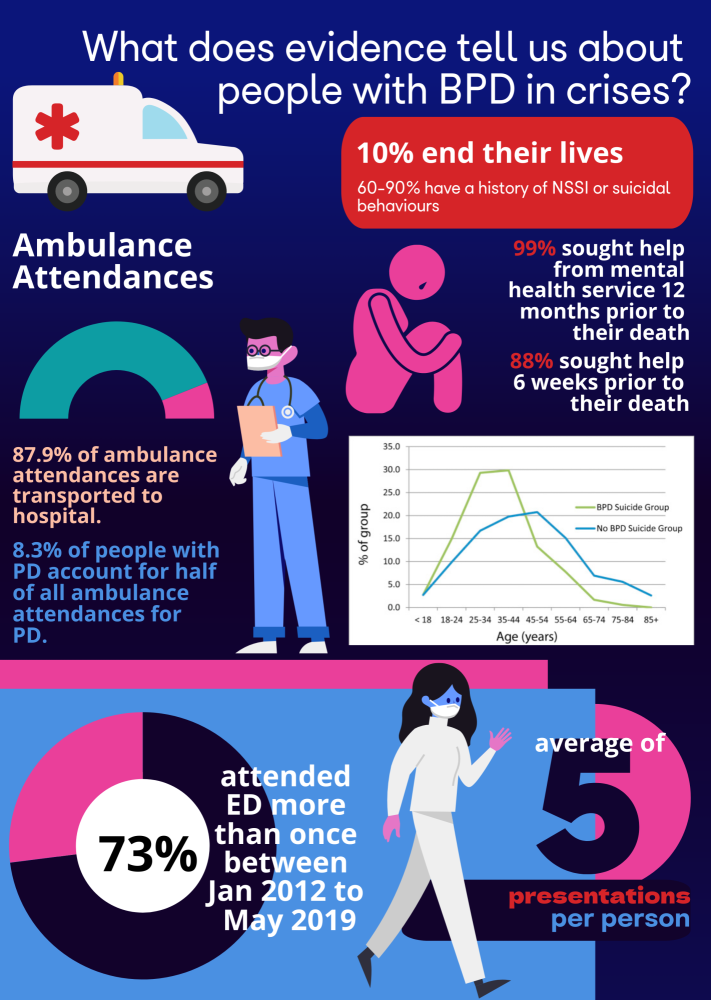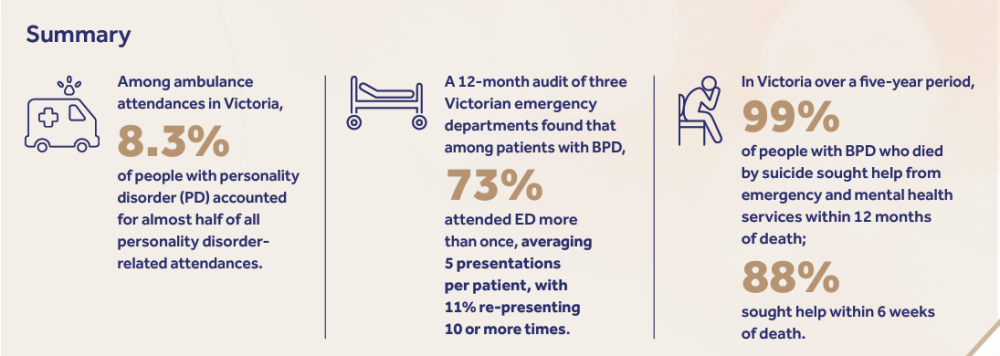Crisis responding to meet the needs of people with BPD
Look at the findings of service utilisation by people diagnosed with BPD during mental health crises.
Wed, Feb 19


Breaking the cycle
The ongoing and complex needs of people diagnosed with borderline personality disorder are unable to be met by our current healthcare system.
A lack of 24/7 options forces people experiencing symptoms of BPD to seek care from crisis response services.
Unfortunately, these are not designed for people with mental health needs, and for people with BPD are potentially discriminatory, harmful, and invalidating.

Despite the broadly held perception that people diagnosed with BPD place a heavy burden on acute crisis services, we found that the overall proportion represented by this population reflects the prevalence of this disorder in the community.
However, a small number of people diagnosed with BPD frequently engage with crisis services, highlighting challenges they experience accessing ongoing support elsewhere in the community.
These challenges contribute to heightened distress and increased crisis service presentations as the person tries to get their needs met, highlighting the importance of identifying people struggling with BPD and offering more comprehensive supports as an alternative to crisis services.
To read more, visit page 38 of our Annual report.

